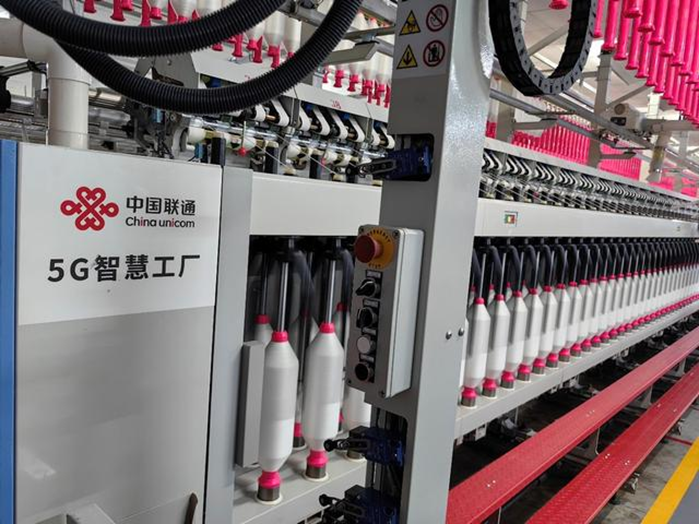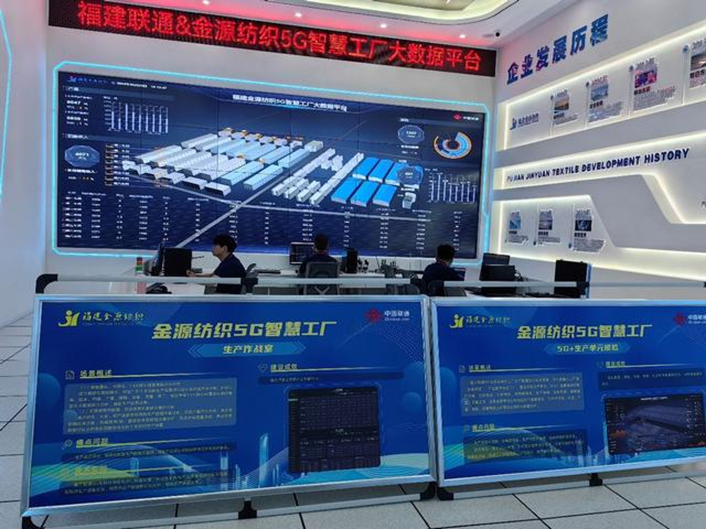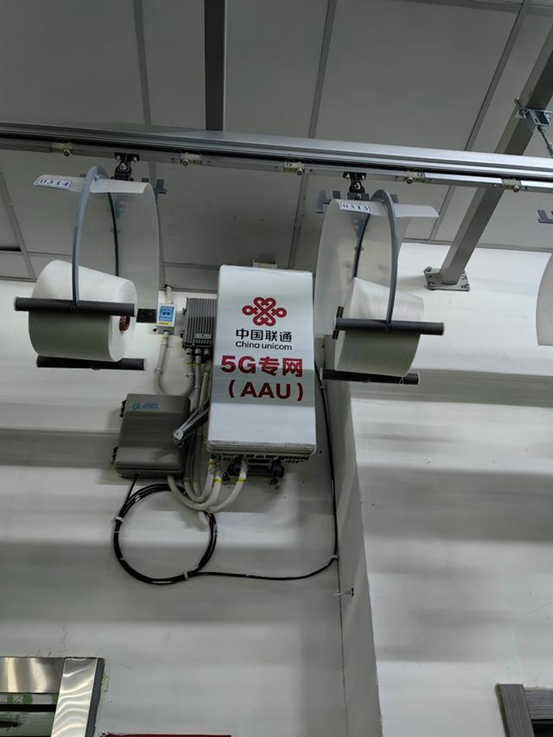Fujian Province has historically been a forerunner in China's textile industry, with Changle District in Fuzhou City, dubbed as the"City of Textiles", stands out as a key base for the textile industry. The textile industry here is pioneering a reform that is driving the digital and intelligent upgrade of enterprises, as they accelerate the inclusion of emerging technologies like 5G, AI, big data, and IoT to improve their core capabilities from equipment to production.
Jinyuan Textile is one such pioneer enterprise. The time-honored company has partnered with China Unicom, and now runs a fully-connected 5G smart factory complete with cloud, network, and device capabilities as well as advanced technologies like big data and IoT. China Unicom has also built a big data platform for the 5G smart factory to enable all-round connection and efficient collaboration throughout the service process, with several scenario-specific applications being listed as industry-firsts.
First Step to a Smart Factory: Production Data Visualization
With high-speed and stable 5G networks, the company can implement automated control over production activities in workshops based on dashboard data, facilitating intelligent processes, visualized production lines, and data-based management.
To better support the enterprise's digital development, China Unicom has deployed a 5G private network and two cloud platforms — a textile cloud and a mobile edge computing (MEC) cloud — to empower several 5G applications, including production energy efficiency management, intelligent production of roving-spinning units, intelligent detection of single spindles, panoramic digital twin, and intelligent flexible packaging of bobbin yarn. Complete and automatic device data collection, seamless connection of full-process service applications, multi-screen collaboration, and assisted decision-making collectively reduce costs and holistically improve efficiency.
To facilitate the enterprise's crew management, production planning, and space utilization, China Unicom has built a digital replica of the factory. The operator started this process by taking a comprehensive look at the factory using big data technology that was based on production data dynamically collected over a 5G hybrid private network. Following this, China Unicom began digital modeling, simulated verification, analysis, and prediction on all production factors. This digital replica now facilitates the precise control and big data analytics of the entire service process from sales order taking, production tracking, device monitoring, energy consumption management, and quality monitoring to finished product delivery.
The 5G smart factory has created tangible benefits: improving machine utilization by 22%, shortening downtime by 13%, reducing production quality incidents by 30%, and cutting warehouse stocktaking workload by 38%, all while guaranteeing 100% traceability of product quality and processes.
Digital Governance Improves Quality and Productivity
Through the pursuit of digital transformation, Jinyuan has emerged as a national benchmark in China's textile industry, which is worth tens of billions of US dollars, with the company boasting a production capacity up to 600,000 spindles, a number that is only set to increase thanks to its 5G smart factory. Currently, China Unicom is helping the local brand proceed with phase-2 of the fully-connected 5G factory and phase-3 of the 5G+industrial Internet smart factory, looking to unleash even greater productivity.

One manager at Jinyuan Textile explained that China Unicom's 5G network solution is the reason their smart factory is working well and that the combined application of 5G and MEC allows them to make intelligent production decisions. 5G also deeply mines production data and, after holistic data collection and analytics, transform it into a key factor in improving the quality and productivity at reduced costs. For example, the traditional method of manually recording and calculating a crew's work performance has been phased out with 5G-based automated data collection and statistics, greatly boosting both efficiency and accuracy.

Additionally, the enterprise's production process used to be labor-intensive, while the process management was largely empirical, resulting in low efficiency and profitability. Furthermore, the lack of transparency in production and operation status, as well as equipment data, seriously impeded the timely detection of production anomalies. The 5G smart factory's big data platform solved this problem by visualizing the entire service process all the way from order taking and production to equipment, energy, quality, and warehousing. All production data is graphically displayed and dynamically updated on a single screen where the crew can easily view and understand the running status of production lines, enabling the digital governance of workshops to improve both production efficiency and quality.

The manager also expressed his excitement for future partnerships similar to the one with China Unicom. Jinyuan Textile is planning to upgrade its process to high-precision control and efficient operations with highly-automated production lines, intelligent management systems, and big data analytics. The company also has the ambition of motivating the textile industry at large to vie for higher-quality growth through digital and intelligent transformation.
Jinyuan Textile is an excellent use case that shows how new technologies like 5G can upgrade traditional businesses to improved productivity. The 5G smart factory stands out as an example for the manufacturing sector as it looks to achieve sustainable development through the introduction of new capabilities, like big data, with the help of telcos, such as China Unicom.


